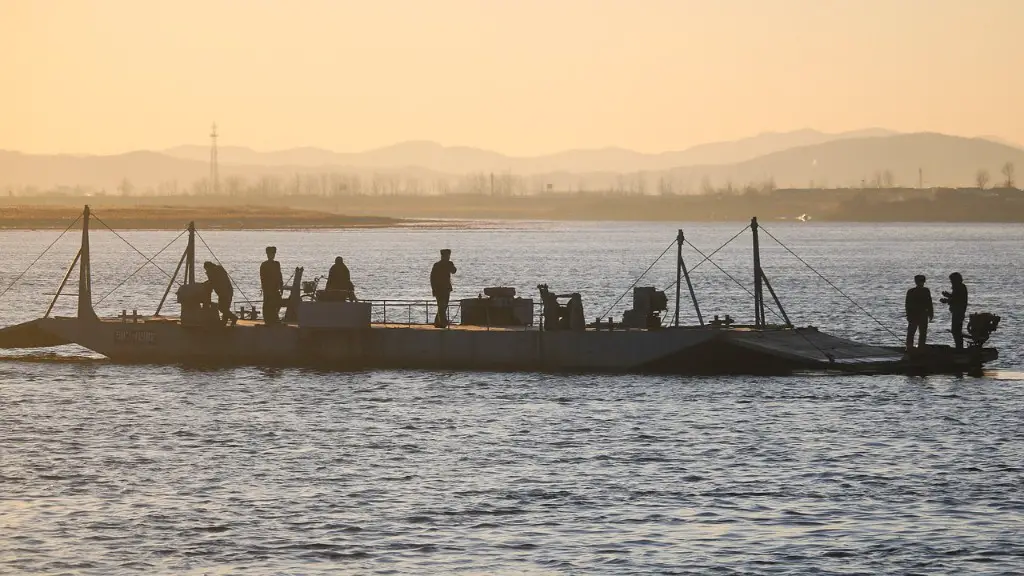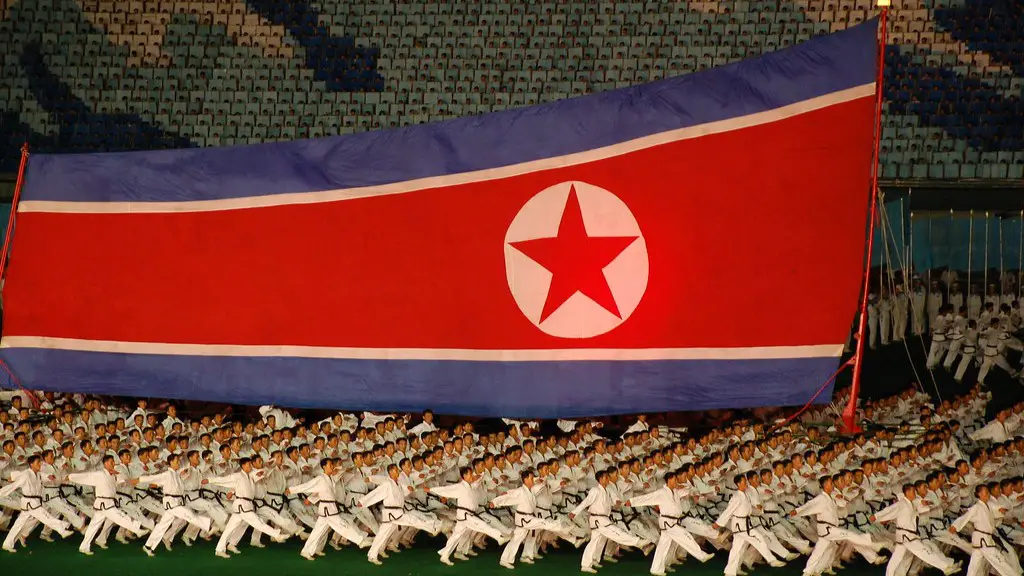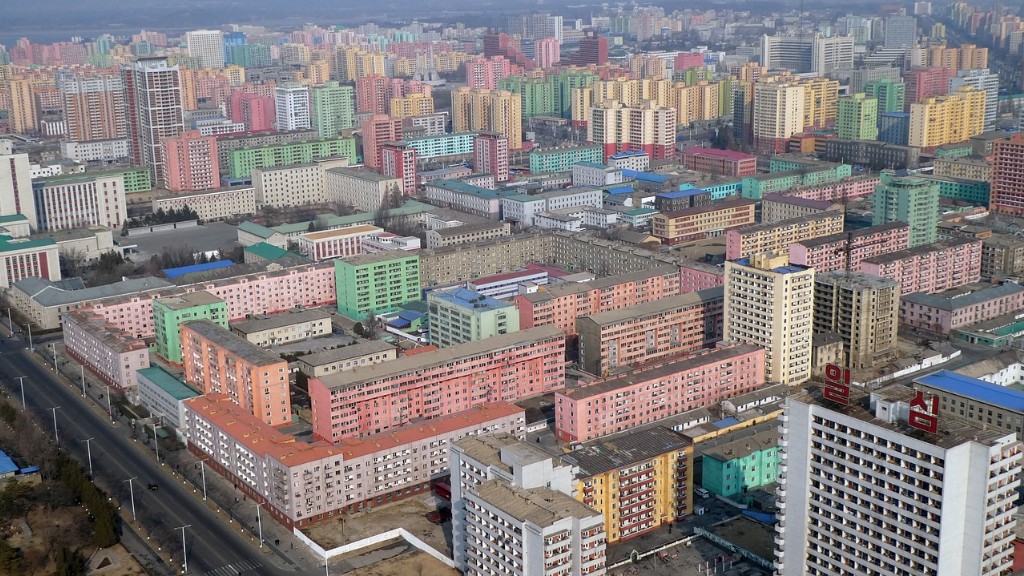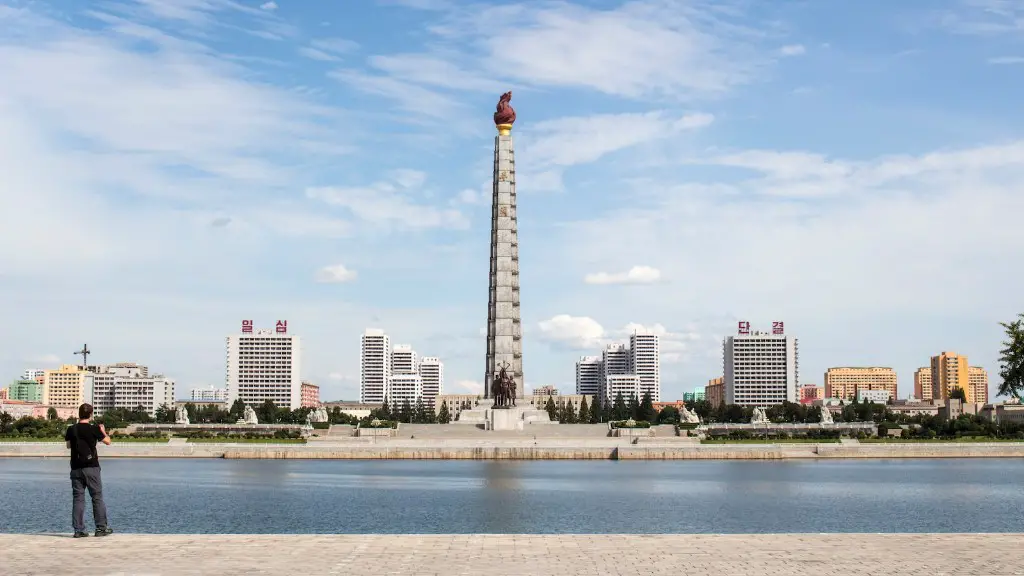Background Information
Attacks against North Korea are a complicated issue that has to be examined from all angles. North Korea is a heavily militarized country, possessing what some experts estimate to be as many as 10 to 15 nuclear warheads, plus a large military force, and no shortage of modern weapons. In addition, North Korea is located in a region that, although not directly connected to the United States, is geographically close to countries with whom the U.S. has long-standing diplomatic relations, namely South Korea and Japan.
The current North Korean regime has been engaged in inflammatory and belligerent rhetoric for decades, and has actively pursued the development of a nuclear weapons program. It is often cited by the United States and other powers as a major contributor to regional instability in East Asia and has even been accused of sponsoring terrorism.
Therefore, the question of why the U.S. is unable to attack North Korea becomes increasingly complex. To answer this question in a proper frame, it is necessary to look at the political, economic, and military realities of the situation.
Political Considerations
The first major consideration is the political ramifications of a U.S. attack on North Korea. It is widely accepted that such a move would be hugely provocative and could easily lead to a major international crisis. It is likely that China and Russia, both of whom have close ties to North Korea, would respond negatively to such a move and possibly take action of their own. It is also possible that North Korea’s nuclear arsenal could be used in a retaliatory strike, resulting in massive civilian casualties.
Furthermore, the U.S. has important diplomatic relationships with its closest neighbors, South Korea and Japan, both of whom could be put in tremendous danger by a U.S. attack on North Korea. Given the implications of such a move, it seems sensible that the U.S. is unwilling to launch a military attack against North Korea.
Economic Realities
In addition to the political considerations, there are also hefty economic considerations. North Korea is not a wealthy nation and the costs of any U.S. military operation would be significant. A prolonged conflict would also put a strain on the U.S. economy, which has been struggling in recent years. Furthermore, any attack on North Korea could have serious economic repercussions for the region as a whole. It could also cause a financial crisis in China, a key U.S. trading partner.
Given the likely economic consequences, the financial costs associated with an attack on North Korea would likely outweigh any possible benefits. Thus, it appears logical that the U.S. is unwilling to launch a military attack on North Korea.
Military Considerations
Apart from the political and economic factors, there are also serious military considerations. North Korea is a heavily militarized country and any attack would likely require a large-scale military operation. Such an operation would be logistically complex and could be extremely costly in terms of human lives. In addition, recent experience in Iraq, Afghanistan and Libya have shown that even with the best military plans, such operations can be highly unpredictable, and success is by no means guaranteed.
Given the potential risks involved, it is reasonable to assume that the U.S. military is loathe to launch an attack on North Korea, or is at least very reluctant to do so. Therefore, it is understandable why the U.S. is not attacking North Korea.
International Relations
Finally, there is the consideration of international relations. There have been recent diplomatic efforts concerning North Korea, most notably the now defunct ‘six-party talks’. This suggests that the U.S. is willing to pursue a diplomatic solution, rather than a military one. It also means that the U.S. is violating international law if it launches an attack on North Korea, as this would likely be seen as an act of aggression.
This all points to the conclusion that the U.S. is unwilling to attack North Korea, due to the political, economic, and military considerations involved, as well as the risk of violating international law. As a result, it appears that the U.S. will continue to pursue a diplomatic solution to the North Korean crisis, rather than a military one.
Analysis
Given all these realities, it is not surprising that the United States is unwilling to launch an attack on North Korea. It is clear that the potential risks far outweigh any possible benefit, and it appears that the U.S. is opting for a diplomatic solution. This is not only the most sensible course of action, but also the most prudent one.
However, this does not mean that the U.S. is ignoring the threat posed by North Korea. The U.S. and its allies are still closely monitoring the situation and are ready to take action if necessary. Furthermore, the U.S. is actively involved in the search for diplomatic solutions and is working closely with its allies to ensure that North Korea does not become a greater threat to regional security.
International Outcry
The international community has been largely united in its condemnation of North Korea’s nuclear program and its increasingly belligerent posturing towards its neighbors. This has led to a number of diplomatic resolutions, which many believe to be in the best interests of global security. However, some experts fear that North Korea may be beyond the reach of diplomacy and are advocating for a more aggressive approach.
The United Nations has also played an important role in the North Korean crisis. In 2006, the U.N. Security Council unanimously adopted a resolution demanding that North Korea abandon its nuclear weapons program. This resolution has been reaffirmed numerous times over the years, with the most recent being in December 2017.
Despite the global condemnation, North Korea has continued to pursue its nuclear program and is believed to have expanded its arsenal of nuclear weapons. This has led to further efforts by the international community to try and get North Korea to abandon its nuclear weapons. Unfortunately, these efforts have so far proven to be unsuccessful.
Military Actions
As a result of the failure of diplomacy, some experts have advocated for taking a more aggressive approach to North Korea. This has included military action, such as a “surgical strike” on North Korean nuclear facilities. However, such a move would be incredibly risky, given North Korea’s large military force and sophisticated weapons. It is likely that such an attack would lead to an all-out war, in which the U.S. and its allies could suffer heavy casualties.
Given this stark reality, it is understandable why the U.S. is not attacking North Korea. The costs in terms of human life and economic hardship would be too high, and the odds of success are uncertain at best. As a result, the U.S. has opted to continue its diplomatic efforts, while keeping all its military options on the table.
Implications
The situation with North Korea is a complex and potentially dangerous one. It is clear that the U.S. and its allies are unwilling to launch a military attack on North Korea and are instead pursuing a diplomatic solution. However, it is also clear that North Korea is unlikely to back down without significant international pressure and the potential for military action remains.
The situation in North Korea is one that could have wide-reaching implications for the international community. It is essential that the U.S. and its allies remain vigilant in their efforts to bring stability to the region. Furthermore, it is essential that the U.S. and its allies continue to pursue diplomatic solutions, while still keeping all their military options on the table.
Sanctions
In addition to diplomatic and military action, economic sanctions have been used by the international community as a tool to pressure North Korea. The United Nations has implemented a number of economic sanctions, including a ban on international arms sales and the export of luxury goods. In 2017, the Trump administration also imposed additional economic sanctions against North Korea, including banning the export of coal and other goods.
The effectiveness of such sanctions is debatable, as North Korea has continued to pursue its nuclear weapons program in spite of them. However, some experts believe that such sanctions have played an important role in limiting North Korea’s access to the international finance system and deterring foreign investment in the country.
In addition, there have been reports that some of the sanctions have been affecting the North Korean people, making life more difficult for them. This suggests that economic sanctions may be having an impact, and it is likely that they will continue to be used in the future.
Conclusion
Overall, it is clear that the U.S. and its allies are unwilling to launch an attack on North Korea and are instead pursuing a diplomatic solution. However, the potential for military action remains, as does the use of economic sanctions as a tool to pressure North Korea. It remains to be seen how effective these measures will be in bringing stability to the region, but it is clear that the U.S. and its allies are actively working to find a diplomatic solution to the North Korean crisis.





